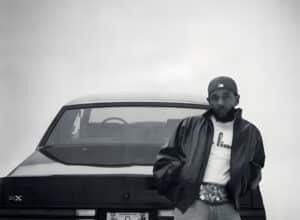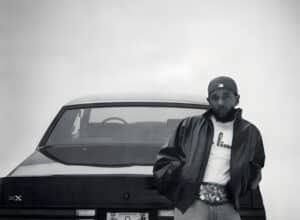Released: 2024
Kendrick Lamar’s ‘Wacced Out Murals’ delves into themes of personal resilience, cultural pride, and industry critique, painted with his distinctive lyricism. It embodies a sense of betrayal and perseverance while touching on racial and societal issues. Throughout the song, Lamar asserts his identity, battling both external criticism and internal demons.
The hook opens with a sense of nostalgia and melancholy: “Siento aquí tu presencia… nos ponemos a llorar.” This Spanish introduction immediately evokes an emotional ambiance, as Lamar reflects on the ever-present sense of loss and lamentation for things once beautiful, now defaced, like his mural. This leads to an outpour of emotions about defacing what is significant and meaningful, which is a metaphor for disrespect or misunderstanding of his work.
The verse “Yesterday, somebody whacked out my mural,” begins Kendrick’s introspective journey. A ‘mural’ often symbolizes legacy, heritage, and respect, which here represents Kendrick’s contributions to his community and culture being disrespected. It implies that external forces attempt to erase or belittle his accomplishments, urging a powerful message of standing firm against these challenges.
As he continues, “That energy’ll make you niggas move to Europe,” Kendrick conveys how such betrayal can lead one to abandon their roots. Yet, for him, it’s become a norm—implying resilience amidst chaos. The use of ‘niggas’ in this context isn’t merely casual but acts as a defiant reclamation of derogatory language, making a bold cultural statement.
“All this talk is bitch-made, that’s on my Lord” critiques how false camaraderie and hollow words permeate his experiences. Kendrick isn’t shy to label detractors and deceitful peers as cowardly, marking a line in the sand between genuine and phony relationships. His mention of ‘Lord’ grounds his discourse in a moral and ethical belief system, implying his actions and values are guided by higher principles.
He then asserts, “I done been through it all, what you endure?” marking his passage through life’s hardships as a badge of honor, contrasting with others who may not have faced similar adversities. This highlights his survival instincts and solidifies his stance against those who belittle or underestimate his journey.
The repeated advice, “Yeah, nigga, go and up your rank,” is an anthem of empowerment. Lamar encourages the listener to rise above others’ expectations and assertions. This is about elevating one’s status and self-worth, refusing to be constrained by society’s stereotypes or criticisms. It’s a message that reverberates throughout his catalog, aiming to inspire and uplift.
He reflects on lost relationships with “I done lost plenty friends, 16 to be specific,” addressing the real costs of his fame and personal choices. It’s an acknowledgment that his journey is marked not just by success, but by significant personal losses. These admissions deepen the emotional complexity of the track, weaving regret with determination.
Towards the end, Lamar touches on racial issues: “Don’t let no white comedian talk about no Black woman, that’s law,” highlighting societal injustices and a protective stance over Black women, urging accountability and respect. Here, he draws lines of cultural integrity that he staunchly defends, confronting those who misrepresent or disrespect his community.
Ultimately, the song isn’t just about lamenting lost respect but rallying against societal injustices. Kendrick makes clear that his legacy is not something to be ‘wacced out’ or dismissed easily. It is an unwavering affirmation of his existence, art, and the ongoing struggle for recognition and respect. This piece stands as both a critique of the music industry and a broader societal examination.








